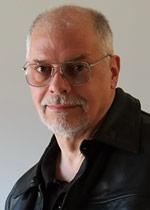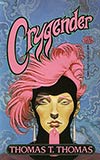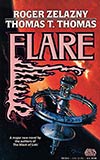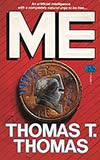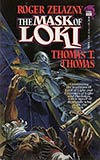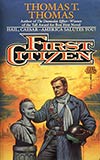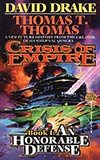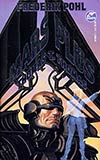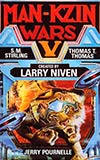Biography
I am a son of the Eastern technocracy. One grandfather was a civil engineer who--according to family legend--helped develop the stress tables for pre-stressed concrete and poured the concrete dome for the main building at the Massachusetts Institute of Technology (MIT). The other grandfather was a small town lawyer, later elected judge in his rural Pennsylvania county. My father was a mechanical engineer who worked on developments in radar at Bell Labs during World War II and then moved on to nuclear fuel production, early compact computers (a fire-control computer for the U.S. Army the size of four trailer trucks linked together), and later worked in electronics. My mother was a landscape architect who knew the Latin name for every flower and shrub in our garden. The connection with civil engineering holds good on her side of the family, too, as she was a direct descendent of Sir Christopher Wren, who designed St. Paul's Cathedral and rebuilt much of London after the Great Fire of 1666.
My education was all in public schools including Pennsylvania State University, where I earned a BA in English Literature. I studied Latin, French, and Russian in high school (with some great teachers), Russian and some Greek in college. And I've spent the rest of my life making up for my early deficiencies in mathematics, chemistry, biology, and physics with reading and working at science-based companies.
If everyone is truly going to have seven careers in his lifetime, I am working on my fourth. After college, I worked at two publishing houses, editing first scholarly books at the university press, then trade books at a publisher who specialized in California history, railroad histories, and outdoor adventure. It was one of my authors at the latter house who introduced me to my future wife, Irene, a librarian in rare books and manuscripts who helped the author with her research.
After publishing, I went into technical editing of proposals and reports at a large engineering and construction company. There I learned first-hand how power plants, steel mills, transit systems, cement kilns, and coal mines are built. It was an easy transition from the engineering company to one of the West's largest electricity and natural gas utilities, where I soon took up public relations writing, always with an interest in understanding and explaining for others the technical foundations of the industry.
I wrote my first novel at age 16. Unlike the usual first novel--five pages handwritten in crayon at age eight (I actually did that at about twelve)--this was a complete manuscript of about 475 pages. I got up several hours before school to work on the first draft in longhand and then produced two copies, with carbon paper, on the Judge's ancient Underwood typewriter. However, it was not until the mid-80s that I started writing and publishing fiction professionally. The result was the first eight novels listed on the Science Fiction page, plus two novellas. Short stories never attracted me as projects, however; I tend to think in book lengths.
When I left the utility company to make my living as a novelist and freelance communicator, book publishing looked like a good business. It worked for me for about five years, but by then the publishing industry had already started dying through a little-known change in the tax laws. Rather than starve gracefully, I re-entered the workforce in biotechnology, writing and editng manufacturing documents at a large pharmaceutical company. Three jobs later, I was writing internal communications for the leading company that makes instruments and reagents for genetic analysis, stem cell research, and synthetic biology... once again explaining science and technology for the general reader.
And now, with the resurgence of the publishing industry through ebooks, I'm once again groing to try my hand at freelance writing for a living.
In retrospect, I see my careers as a way to learn how the western industrial world is put together, how the necessities that support our daily lives are created and distributed, and how the technology of the twentieth--now the twenty-first--century has evolved and grown. I hope this knowledge and understanding makes my novels more interesting for the reader.
Works in the WWEnd Database
Non Series Works |
|||||||||||||||||||
|
|
|
|
|
|||||||||||||||
|
|
|
|
|
|||||||||||||||
|
|
|
|
|
|||||||||||||||
|
|
|
|
|
|||||||||||||||



















 Full Details
Full Details

